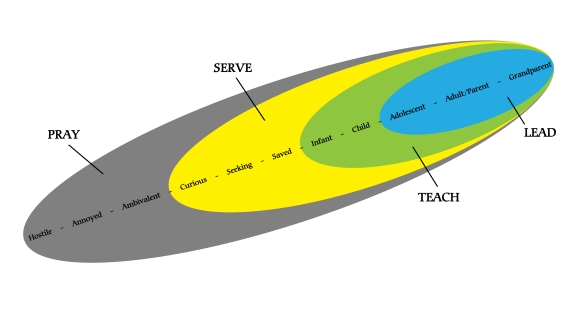This Friday it will have been one full week since a disturbed man murdered his own mother and then proceeded to slaughter dozens of people – mostly small children – at the school where his mother had taught, finally taking his own life. What happened before nightfall of that same day was a phenomenon to watch:
- Some people started blaming guns.
- Others argued for greater use of guns for protection against such people.
- Political positions were asserted
- Some prayers were given…
All of this is normal – we like to assign blame. And personally, I sense a gross oversight in one source to consider blaming: the man who did this. But I digress…
The thing that honestly frustrated me more than any of that was how many people, Christians mostly, were quick to start using this tragedy as a political soap box. Now, don’t misunderstand me. I am a strong advocate of our American right to keep and bear arms. Even aside from constitutional provision, I have a God-given mandate to protect my home and family. A right I will relinquish to no one.
But my point is, that there were dozens of families in Connecticut that went to bed that night with one less family member than they started the day with… And in even less of a window of time, many people hundreds or thousands of miles away who profess the name of Jesus, had used their family’s virtual Hell as a cliche political statement on Facebook. I think something’s wrong here…
Yes, Christ-followers should stand up for their rights. Yes, we should answer those who would seek to take those rights from us. But we also have a much higher calling and responsibility to consider. Such as:
- The families who lost people from this
- The people who are saying “Where is God?” in all of this
- Other Christ-followers who are confused and needing direction
- Others who have also experienced a terrible loss
One of my favorite passages of Scripture is Luke 4:18-19 where Jesus says, “The Spirit of the Lord is upon Me, because He has anointed Me to preach the Gospel to the poor; He has sent Me to heal the brokenhearted, to proclaim liberty to the captive, and recovery of sight to the blind, To set at liberty those who are oppressed; to proclaim the acceptable year of the Lord.“
It seems apparent to me, that Jesus’ bigger concern had to do with connecting people to their God-given potential in Him. He was about meeting needs, healing, delivery, recovery, liberty, and preaching the message of the Kingdom. If we claim to follow Him, then these are the thing we should be about also.
There would have been no lack of hot, politically-charged issues in Jesus’ day. And granted, He occasionally addressed them. But His default move when tragedy struck had less to do with political action and more to do with hands-on involvement in the situation.
If we truly want to be like Jesus, we must also humble ourselves and let that mindset lead our behavior – and our opinions. I’m not even saying that you and I should not express political opinions. Far from it, in fact! My point, concisely put, is that we change the world by the love of God working through us to others.
Blessings,
Pastor John
PS – And yes, I would address your congressman of choice regarding your desire to maintain your constitutional rights. If strict laws would keep things like this from happening, then the one against murder would have been enough.




